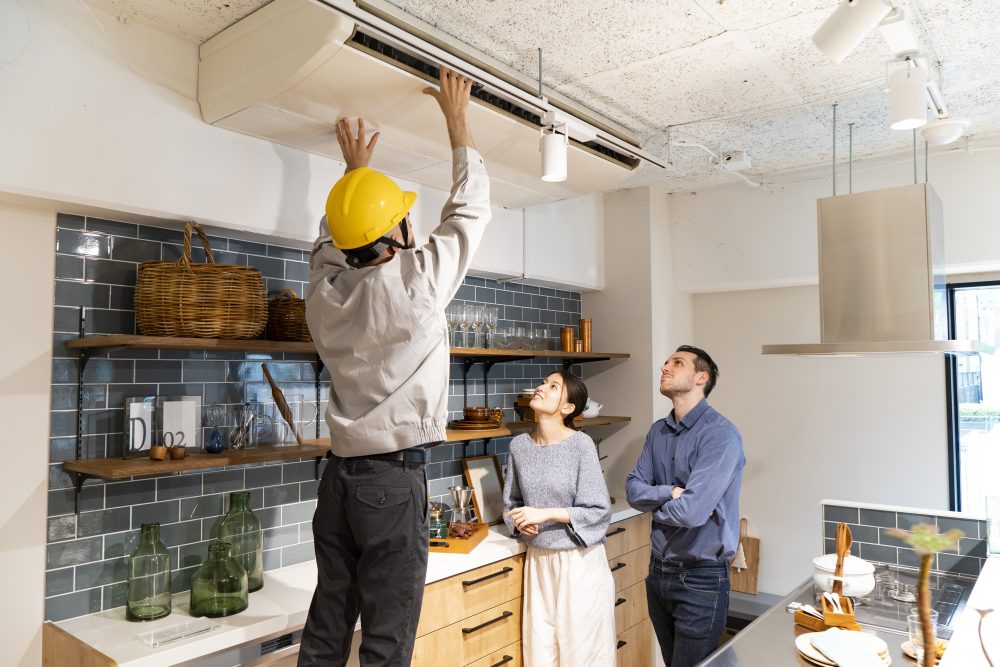
Did you know that the Inflation Reduction Act of 2022 set aside a significant amount of funding in the form of IRS tax breaks for consumers who make specific home improvements and replace their energy-draining systems and appliances with energy-efficient models?
For appliance retailers, being aware of the tax breaks and rebates offered to consumers in your area by state and federal governments, as well as power companies, can help you increase sales all while saving your customers money. Not only is understanding these programs a great way to endear you and your team to consumers, but it also comes with the knowledge that both the consumer and the retailer are doing their part to help reduce our national carbon footprint.
Understanding How to Take Advantage of the Inflation Reduction Act
Beginning this year and stretching through 2032, the federal government and many state governments are offering taxpayers incentives to make energy-efficient home improvements by covering installation costs for a variety of items. Eligibility is determined by a number of factors, such as the type of property in which the energy-efficient improvements are being made, and the annual income of the entities applying for home improvements, which is looked at in comparison with the median area income where the taxpayer is located.
According to the IRS, taxpayers can claim up to $1,200 of energy-efficient home improvement credit equal to 30 percent of the sum paid for expenses that go toward energy-efficient home improvement. By encouraging consumers to upgrade to energy-efficient appliances, retailers can potentially have consumers claim a maximum of $3,200 annually in energy-efficient home improvement credit come next tax season.
The act also stipulates that consumers are eligible for rebates under the “High-Efficiency Electric Home Rebate Program” determined by state energy offices. Rebates are offered to consumers who upgrade their appliances to more energy-efficient ones as outlined in the act. For example, consumers can earn a rebate of up to $840 for electric stoves, cooktops, ranges or ovens, as well as electric heat pump clothes dryers that meet qualifications for energy efficiency.
Considering this wealth of opportunity, appliance retailers would do well to inform consumers of how making energy-conscious purchasing decisions can help alleviate greenhouse emissions, conserve energy, and save money on utility bills.
Keep Up With Rebates Offered By Utility Companies at the State and Local Level
Utility companies in various states also offer rebates to qualifying entities that implement energy-efficient home improvements and installations. Consumers can contact their local power company to determine their eligibility for receiving rebates and even financing installation costs.
For example, Home Uplift by the Tennessee Valley Authority (TVA) is a program that provides on average $10,000 in free home installation of energy-efficient appliances and systems for income-eligible customers with limited means. The program is administered by EnergyRight, a branch of the TVA that educates and informs customers on how they can find cost-effective solutions to making their homes more energy-efficient. By partnering with local governments, community organizations, as well as public and private businesses to pool resources, Home Uplift optimizes its impact on local communities that need access to affordable energy-efficient appliances and systems. Consumers can also turn to resources provided by the TVA, such as its EnergyRight Marketplace, when deciding which energy-efficient appliances to purchase and how they can have them installed without breaking the bank.
Being familiar with utility companies’ programs in your area of operation is beneficial for two reasons. First, it allows you to tune in with consumers on a micro level where rebates are dependent upon multiple factors like zip codes and median area income. Second, the specifics of each utility company’s programs can aid your outreach efforts to promote the sale of energy-efficient products to consumers looking to save.
Energy Star: What Is It and How Does It Factor Into Choosing Rebate-Eligible Appliances?
Consumers looking for energy-efficient appliances that will save them money through tax credits and rebates have to look no further than Energy Star-certified appliances. Administered by the Environmental Protection Agency (EPA), Energy Star is a government-backed program that reassures consumers that products marked with the blue Energy Star label are certified energy efficient. According to Energy Star, the certification program has saved 5 trillion kilowatt hours of electricity and avoided more than $500 billion in energy costs since it was introduced in 1992.
For products to become Energy Star-certified, manufacturers must first sign an agreement with the EPA. The products are then evaluated by third parties, also overseen by the EPA, against strict performance criteria. Third-party reviews guarantee fair evaluations and maintain industry standards for energy efficiency.
Two companies whose appliances have been leading in Energy Star certification are Beko and Miele. Both companies have made Energy Star’s Most Efficient 2023. Two appliances that qualify consumers for rebates are also on this list: Beko’s Heat Pump Ventless Front Load Dryer HPD24414W and Miele’s PDR 908 HP Heat Pump Dryer.
The Takeaway
The Inflation Reduction Act of 2022 incentivizes consumers to save money all while lowering our national carbon footprint. By investing in qualified energy-efficient appliances that go toward home improvement, consumers can claim tax credits and rebates. Consumers are not the only ones who benefit from the act; retailers can get in on the action as well. By taking steps to familiarize themselves with the act, staying up-to-date with rebates offered by utility companies in their areas of operation, and keeping an eye on Energy Star-certified appliances, retailers can boost sales all while helping to reduce overall energy usage.














